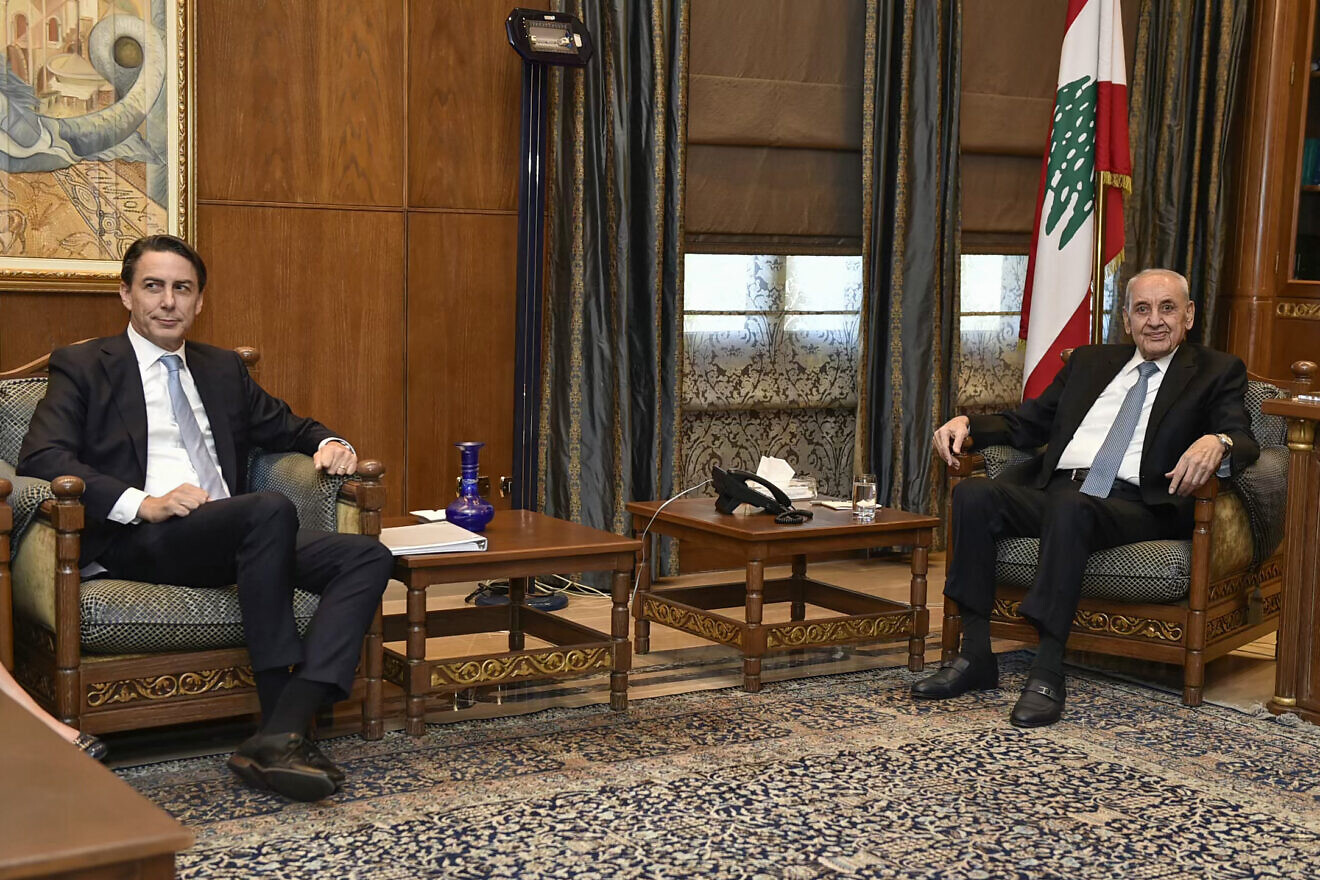US special envoy Amos Hochstein arrived in Beirut on Monday to meet with Lebanon’s caretaker Prime Minister Najib Mikati and Hezbollah-allied parliament speaker Nabih Berri, as the Israel-Hezbollah full-out war approached its one-month mark.
Following his discussions with Lebanese officials, Hochstein stated at a news conference that linking Lebanon’s fate to other regional conflicts does not serve the interests of the Lebanese people, according to Al Jazeera.
He expressed that a resolution to the conflict between Hezbollah and Israel is possible, but the situation has escalated “out of control, as we feared it might.” He emphasized that the US government aims to ensure this is the last conflict in Lebanon for generations.
Contrary to many analyses suggesting that the U.S. might no longer engage in ceasefire negotiations, Hochstein emphasized that the U.S. administration is actively working with both Lebanon and Israel to develop a formula for a permanent resolution to the conflict.
He underscored the need for a settlement based on UN Resolution 1701, adopted after the 2006 war, which called for a border area free of arms and fighters outside the state’s control. However, he stressed that mere commitment from the warring sides to this resolution “is not enough” to resolve the underlying issues.
“1701 was successful in ending the war in 2006, but we must be honest that nobody did anything to implement it. The lack of implementation over those years contributed to the conflict we are in today. That must change because both sides simply committing to 1701 is just not enough,” he stated.
Lebanon’s caretaker Prime Minister Najib Mikati stated that there is no alternative to the UN Resolution 1701, according to a statement released by his office on Monday. However, he also noted that “new understandings” could be established to facilitate its implementation.
Speaker of Parliament Nabih Berri stated to Al Arabiya over the weekend that Hochstein’s visit represents “the last chance before the U.S. elections” to achieve a truce, as his mandate is nearing an end and the US presidential elections are quickly approaching.
Monday’s meeting took place shortly after Israel expanded its air campaign against Hezbollah’s assets overnight, targeting several branches of Al-Qard al-Hassan, an alternative to the Lebanese banking system seen by the U.S. as being used by Hezbollah to manage its finances.
The strikes occurred in Beirut, southern Lebanon, and the Bekaa Valley. No casualties were reported immediately.
The Al-Qard al-Hassan association operates more than 30 branches across Lebanon, including 15 in densely populated areas of central Beirut and its suburbs.
Israel’s conditions for ending the war in Lebanon
Israel has reportedly provided the United States with a document outlining its conditions for a diplomatic solution to end the war in Lebanon, Axios reported on Sunday, which cited two U.S. officials and two Israeli officials.
One of Israel’s key demands is that its military be permitted to engage in “active enforcement” to prevent Hezbollah from rearming and rebuilding its military infrastructure near the border. Additionally, Israel has requested that its air force be granted freedom of operation in Lebanese airspace.
A U.S. official indicated to Axios that it is highly unlikely Lebanon and the international community will accept Israel’s conditions.
Despite ongoing efforts by the U.S. and regional powers to secure a ceasefire in Gaza over the past year, these attempts have been unsuccessful. This has left Lebanese officials and many diplomats skeptical about the prospects for a truce in Lebanon.


